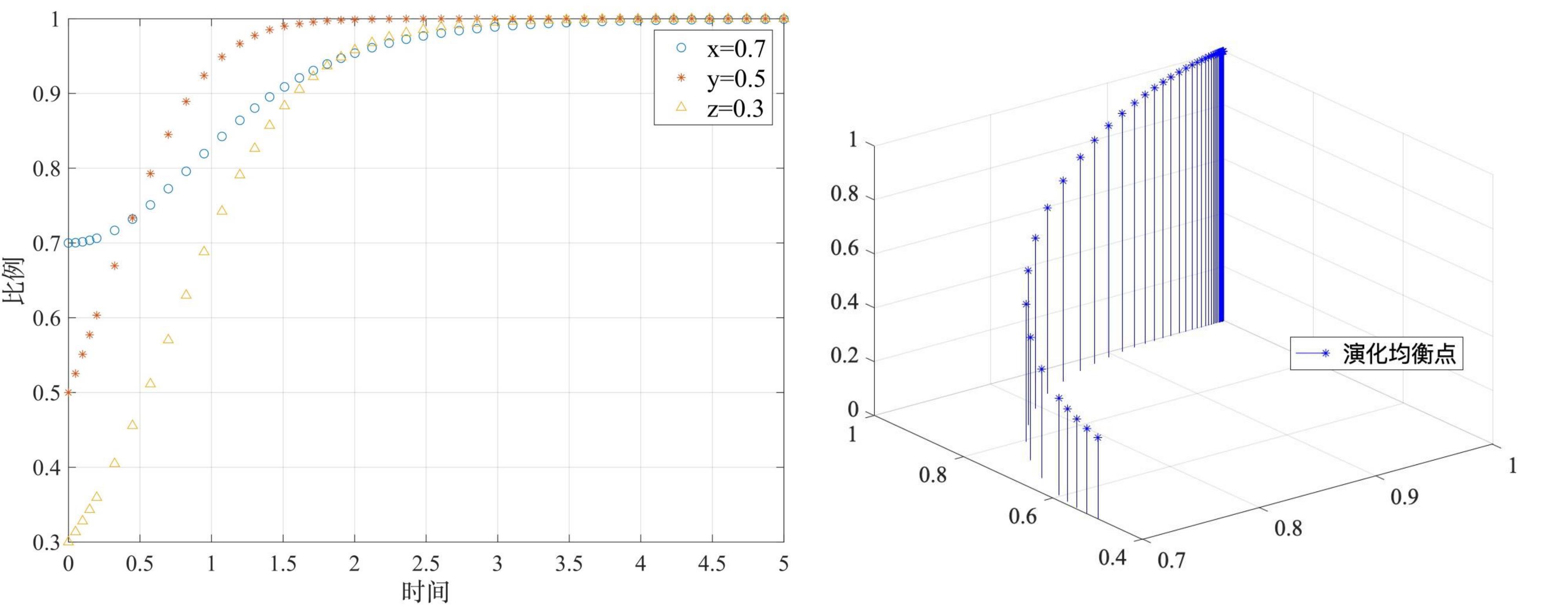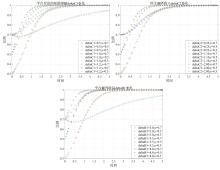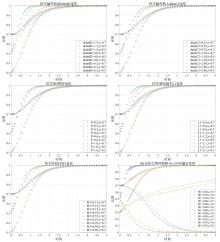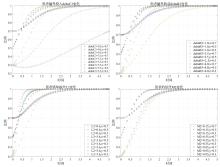| [1] |
茕莹. 从春雨医生用户调研报告,看在线问诊痛点与优化方案[EB/OL]. [2025-03-05]. .
|
| [2] |
丁香园.《2022中国医生洞察报告——线上医学行为分析》[EB/OL]. [2025-03-05]. .
|
| [3] |
丁香园.《2022中国医生洞察报告》[EB/OL]. [2025-03-05]. .
|
| [4] |
易观. 2020年中国互联网医疗年度分析[EB/OL]. [2025-03-05]. .
|
| [5] |
杨学成, 涂科. 共享经济背景下的动态价值共创研究: 以出行平台为例[J]. 管理评论, 2016, 28(12): 258-268.
|
|
YANG X C, TU K. Research on the dynamic value co-creation in the sharing economic background: A case study of the travel platform[J]. Management review, 2016, 28(12): 258-268.
|
| [6] |
邓胜利, 夏苏迪, 许家辉, 等. 组态视角下在线健康社区医生知识贡献影响因素研究[J]. 情报理论与实践, 2022, 45(7): 132-139.
|
|
DENG S L, XIA S D, XU J H, et al. Research on factors affecting knowledge contribution behavior of physicians in online heath community from the configuration perspective[J]. Information studies: Theory & application, 2022, 45(7): 132-139.
|
| [7] |
王玖河, 刘琳, 王勇. 顾客参与价值共创影响因素研究: 基于演化博弈的视角[J]. 数学的实践与认识, 2018, 48(9): 60-69.
|
|
WANG J H, LIU L, WANG Y. A study on the factors affecting customer's participation in value co-creation: Based on evolutionary game[J]. Mathematics in practice and theory, 2018, 48(9): 60-69.
|
| [8] |
董微微, 蔡玉胜, 陈阳阳. 数据驱动视角下创新生态系统价值共创行为演化博弈分析[J]. 工业技术经济, 2021, 40(12): 148-155.
|
|
DONG W W, CAI Y S, CHEN Y Y. Evolutionary game analysis of value co-creation behavior of innovation ecosystem from the perspective of data driven[J]. Journal of industrial technological economics, 2021, 40(12): 148-155.
|
| [9] |
蔡继荣, 韦晓泽. 价值共创还是价值共毁?: 顾企价值创造互动行为协调机制研究[J]. 重庆工商大学学报(社会科学版), 2021, 38(6): 60-72.
|
|
CAI J R, WEI X Z. Value co-creation or value co-destruction: Research on interactive behavior coordination mechanism of value creation between enterprise and customer[J]. Journal of Chongqing technology and business university (social science edition), 2021, 38(6): 60-72.
|
| [10] |
VARGO S L, LUSCH R F. Institutions and axioms: An extension and update of service-dominant logic[J]. Journal of the academy of marketing science, 2016, 44(1): 5-23.
|
| [11] |
陈菊红, 王昊, 张雅琪. 服务生态系统环境下利益相关者价值共创的演化博弈分析[J]. 运筹与管理, 2019, 28(11): 44-53.
|
|
CHEN J H, WANG H, ZHANG Y Q. Evolutionary game analysis of the value co-creation of the stakeholders in the environment of service ecosystem[J]. Operations research and management science, 2019, 28(11): 44-53.
|
| [12] |
VARGO S L, LUSCH R F. From repeat patronage to value co-creation in service ecosystems: A transcending conceptualization of relationship[J]. Journal of business market management, 2010, 4(4): 169-179.
|
| [13] |
令狐克睿, 简兆权, 李雷. 服务生态系统: 源起、核心观点和理论框架[J]. 研究与发展管理, 2018, 30(5): 147-158.
|
|
LINGHU K R, JIAN Z Q, LI L. Service ecosystem: Origin, core viewpoints and theoretical framework[J]. R&D management, 2018, 30(5): 147-158.
|
| [14] |
王昊, 陈菊红, 姚树俊, 等. 服务生态系统利益相关者价值共创分析框架研究[J]. 软科学, 2021, 35(3): 108-115.
|
|
WANG H, CHEN J H, YAO S J, et al. The value co-creation analysis framework of service ecosystem stakeholders[J]. Soft science, 2021, 35(3): 108-115.
|
| [15] |
简兆权, 令狐克睿, 李雷. 价值共创研究的演进与展望: 从“顾客体验”到“服务生态系统”视角[J]. 外国经济与管理, 2016, 38(9): 3-20.
|
|
JIAN Z Q, LINGHU K R, LI L. The evolution and prospects of value co-creation research: A perspective from customer experience to service ecosystems[J]. Foreign economics & management, 2016, 38(9): 3-20.
|
| [16] |
CHANDLER J D, VARGO S L. Contextualization and value-in-context: How context frames exchange[J]. Marketing theory, 2011, 11(1): 35-49.
|
| [17] |
EDVARDSSON B, TRONVOLL B, GRUBER T. Expanding understanding of service exchange and value co-creation: A social construction approach[J]. Journal of the academy of marketing science, 2011, 39(2): 327-339.
|
| [18] |
VARGO S L, LUSCH R F. Service-dominant logic: Continuing the evolution[J]. Journal of the academy of marketing science, 2008, 36(1): 1-10.
|
| [19] |
周涛, 王盈颖, 邓胜利. 基于社会资本理论的在线健康社区用户参与行为研究[J]. 信息资源管理学报, 2020, 10(2): 59-67, 129.
|
|
ZHOU T, WANG Y Y, DENG S L. Research on online health community users' participation based on social capital theory[J]. Journal of information resources management, 2020, 10(2): 59-67, 129.
|
| [20] |
易梦馨, 吴江, 蔡婧璇, 等. 信任视角下基于文本图片多源信息的在线择医行为研究[J]. 情报科学, 2021, 39(9): 84-93.
|
|
YI M X, WU J, CAI J X, et al. Online doctor selection behavior based on multi-source information of text and pictures from the perspective of trust[J]. Information science, 2021, 39(9): 84-93.
|
| [21] |
夏苏迪, 邓胜利, 汪璠. 在线医疗社区健康科普知识供需匹配研究[J]. 现代情报, 2023, 43(7): 38-47.
|
|
XIA S D, DENG S L, WANG F. Research on supply optimization of health science knowledge in online medical community based on user need[J]. Journal of modern information, 2023, 43(7): 38-47.
|
| [22] |
贺珊, 曹坡, 余佳琪, 等. 网络健康社区用户信息交流的认知动因探究: 基于SEM和fsQCA方法[J]. 现代情报, 2023, 43(3): 42-52.
|
|
HE S, CAO P, YU J Q, et al. Research on the cognitive motives of users' health information exchange in online health community using SEM and fsQCA[J]. Journal of modern information, 2023, 43(3): 42-52.
|
| [23] |
杜刚, 韩召. 组态视角下患者在线问诊选择的驱动因素[J]. 系统管理学报, 2024, 33(5): 1270-1283.
|
|
DU G, HAN Z. Driving factors of patient online consultation choice from a configuration perspective[J]. Journal of systems & management, 2024, 33(5): 1270-1283.
|
| [24] |
赵雪芹, 吴鹏, 胡慧慧. 基于集体价值创造的在线健康社区价值共创行为研究: 以“百度抑郁症吧” 为例[J]. 情报科学, 2023, 41(3): 109-118.
|
|
ZHAO X Q, WU P, HU H H. Value co-creation behavior of online healthy community based on collective value creation: A case study of Baidu's "depression bar"[J]. Information science, 2023, 41(3): 109-118.
|
| [25] |
彭家敏, 谢礼珊, 关新华. 虚拟健康社区医生贡献行为的形成机制[J]. 心理科学进展, 2021, 29(6): 978-989.
|
|
PENG J M, XIE L S, GUAN X H. Formation mechanism of the doctor contribution behavior in virtual health communities[J]. Advances in psychological science, 2021, 29(6): 978-989.
|
| [26] |
ZHANG X F, GUO F, XU T X, et al. What motivates physicians to share free health information on online health platforms?[J]. Information processing & management, 2020, 57(2): 102166.
|
| [27] |
ZHOU J J, ZUO M Y, YE C. Understanding the factors influencing health professionals' online voluntary behaviors: Evidence from YiXinLi, a Chinese online health community for mental health[J]. International journal of medical informatics, 2019, 130: 103939.
|
| [28] |
王盼盼, 吴志艳, 罗继锋. 有偿奖励对医生在线健康社区中贡献行为的影响[J]. 系统管理学报, 2022, 31(2): 343-352.
|
|
WANG P P, WU Z Y, LUO J F. Effect of monetary incentive on physicians' contribution behavior in online healthcare community[J]. Journal of systems & management, 2022, 31(2): 343-352.
|
| [29] |
ZHANG X, LIU S, DENG Z H, et al. Knowledge sharing motivations in online health communities: A comparative study of health professionals and normal users[J]. Computers in human behavior, 2017, 75: 797-810.
|
| [30] |
ZHANG X, LIU S. Understanding relationship commitment and continuous knowledge sharing in online health communities: A social exchange perspective[J]. Journal of knowledge management, 2022, 26(3): 592-614.
|
| [31] |
KANKANHALLI, TAN, WEI. Contributing knowledge to electronic knowledge repositories: An empirical investigation[J]. MIS quarterly, 2005, 29(1): 113.
|
| [32] |
MIN J, CHEN Y, WANG L, et al. Diabetes self-management in online health communities: An information exchange perspective[J]. BMC medical informatics and decision making, 2021, 21(1): 201.
|
| [33] |
ZHOU T. Examining users' knowledge sharing behaviour in online health communities[J]. Data technologies and applications, 2019, 53(4): 442-455.
|
| [34] |
MIRZAEI T, ESMAEILZADEH P. Engagement in online health communities: Channel expansion and social exchanges[J]. Information & management, 2021, 58(1): 103404.
|
| [35] |
付少雄, 朱梦蝶, 郑德俊, 等. 基于社会资本理论的在线医疗社区医生知识贡献行为动因研究[J]. 情报资料工作, 2022, 43(3): 67-74.
|
|
FU S X, ZHU M D, ZHENG D J, et al. Research on the behavior motivation of doctors' knowledge contribution in online medical community based on social capital theory[J]. Information and documentation services, 2022, 43(3): 67-74.
|
| [36] |
LIU Y M, ZHANG W P. Specific knowledge sharing intention in online health communities: Sense of belonging as a moderator[C]//2020 Chinese Control and Decision Conference (CCDC). August 22-24, 2020, Hefei, China. IEEE, 2020: 4179-4184.
|
| [37] |
黄子萱, 熊回香. 在线健康社区用户知识共享与隐藏行为的演化博弈研究[J]. 数据分析与知识发现, 2023, 7(11): 125-139.
|
|
HUANG Z X, XIONG H X. Evolution of users' knowledge sharing and hiding behaviors in online health community[J]. Data analysis and knowledge discovery, 2023, 7(11): 125-139.
|
| [38] |
姚志臻, 张斌. 激励机制下在线健康社区用户参与行为演化博弈分析[J]. 情报科学, 2021, 39(8): 149-155, 163.
|
|
YAO Z Z, ZHANG B. Evolutionary game analysis of users' participation behavior in online health community under incentive mechanism[J]. Information science, 2021, 39(8): 149-155, 163.
|
| [39] |
王道平, 刘欣楠, 周玉. 在线健康社区不同级别用户知识交互行为的演化博弈分析[J]. 情报科学, 2022, 40(1): 130-140.
|
|
WANG D P, LIU X N, ZHOU Y. Evolutionary game analysis on knowledge interaction of users at different levels in online health communities[J]. Information science, 2022, 40(1): 130-140.
|
| [40] |
卢新元, 代巧锋, 王雪霖, 等. 考虑医患两类用户的在线健康社区知识共享演化博弈分析[J]. 情报科学, 2020, 38(1): 53-61.
|
|
LU X Y, DAI Q F, WANG X L, et al. Evolutionary game analysis of online health community knowledge sharing considering two types of users: The patient and the doctor[J]. Information science, 2020, 38(1): 53-61.
|
| [41] |
侯贵生, 王鹏民, 杨磊. 在线健康社区用户知识转化与共享的演化博弈分析[J]. 情报科学, 2017, 35(7): 31-38.
|
|
HOU G S, WANG P M, YANG L. Research on evolutionary game of the knowledge conversion and sharing of online health community users[J]. Information science, 2017, 35(7): 31-38.
|
| [42] |
LIU S, XIAO W Y, FANG C, et al. Social support, belongingness, and value co-creation behaviors in online health communities[J]. Telematics and informatics, 2020, 50: 101398.
|
| [43] |
是沁, 刘雨农. 人文社科专题数据库建设的价值共创行为研究[J]. 现代情报, 2019, 39(12): 28-36.
|
|
SHI Q, LIU Y N. Analysis of value co-creation behavior of humanities and social sciences thematic database[J]. Journal of modern information, 2019, 39(12): 28-36.
|

 )
)

















